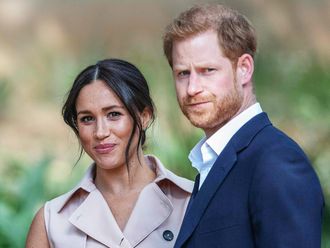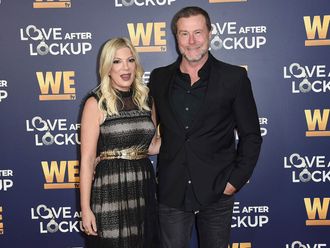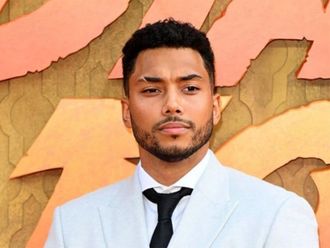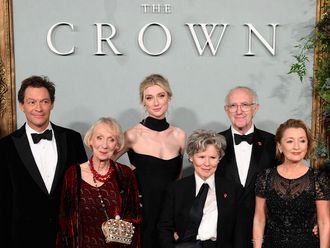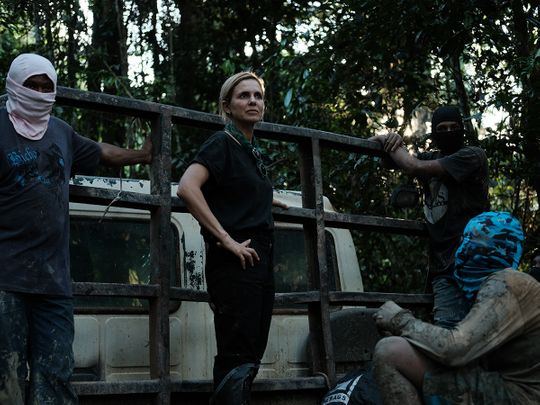
The term ‘black market’ conjures up different ideas to different people — for some it’s associated with illicit substances or guns, while other people think of counterfeit designer bags being sold in a neighbourhood market.
But with the second season of National Geographic series ‘Trafficked’, Peabody award-winning journalist Mariana van Zeller aims to show viewers just how deep and dark black markets can be, and how they go beyond just illegal goods.
“I’ve been covering black markets for almost 20 years, almost my entire career as a journalist,” Van Zeller told Gulf News in a Zoom interview ahead of the release of the second season of ‘Trafficked’.
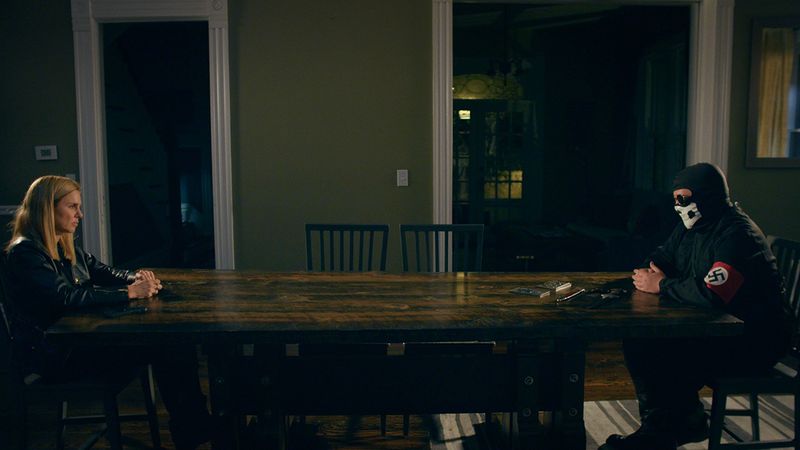
The lack of information about what black markets are and how widely they are spread has compelled her to doggedly follow these stories. In the new season, the show covers topics such as global romance scams, motorcycle clubs, white supremacists and underground plastic surgery.
“Most people don’t know this but half of the world’s economy is actually these black and grey markets, which means that half of the working population of the entire world works under these black or grey markets and yet we know so little about them,” she said. “I think initially, that’s what compelled me, and then figuring out and finding out through my reporting that so many of these operators in these black markets are people just like you and me. But for lack of opportunity, or inequality, they end up as traffickers or chemists or gun runners — as what we consider the bad guys.”
Van Zeller has worked for decades to investigate and uncover difficult stories, and has won many accolades in the process. She won a DuPont Award for her 2016 investigation ‘Death by Fentanyl’, about the opioid epidemic; her 2010 report ‘Rape on the Reservation’, about sexual violence on American Indian reservations, garnered her a Livingston Award; and she received a Peabody Award and Emmy nomination for her 2010 documentary ‘The OxyContin Express’.
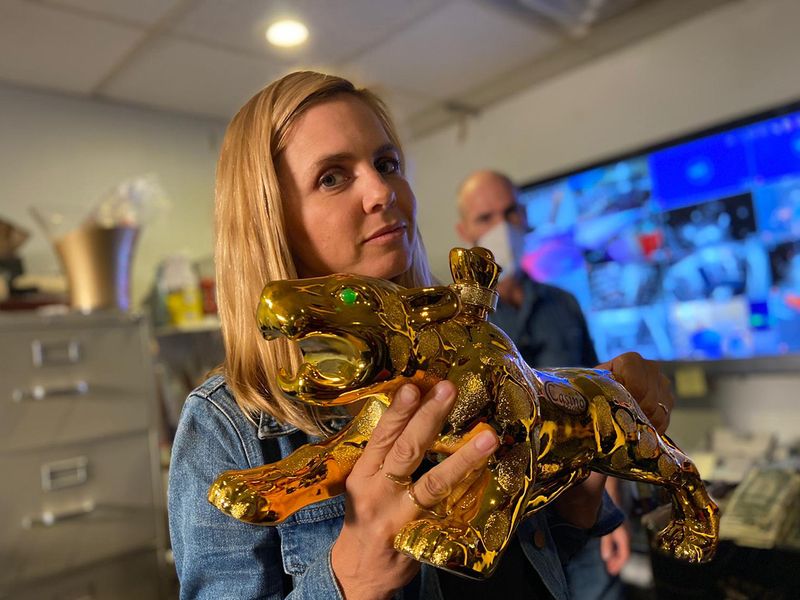
She is perhaps most known for her 2011 investigation of the Mexican drug war and her attempt to interview drug lord Joaquin ‘El Chapo’ Guzman — actor Sean Penn ended up getting the scoop and landing the high-profile interview.
As Van Zeller’s show ‘Trafficked’ returns for a second season on February 18, we find out more about the journalist’s motivations and her strong belief in human salvation.
Tell me about the show and what compelled you to cover these topics.
I’ve been covering black markets for almost 20 years, almost my entire career as a journalist. And I think it’s partly because, most people don’t know this but half of the world’s economy is actually these black and grey markets, which means that half of the working population of the entire world works under these black or grey markets and yet we know so little about them. So I think initially, that’s what compelled me and then figuring out and finding out through my reporting that so many of these operators in these black markets are people just like you and me. But for lack of opportunity, or inequality, they end up as traffickers or chemists or gun runners — as what we consider the bad guys.
Was there a particular topic or episode that made a big impact on you?
I think there was a couple. We did one on white supremacy where I spent time and sat across the table from a couple of American Neo Nazis who were inciting violence and talking about hate and wanting a race war to come to America. Realising how they are actually connected to a global network of white supremacist was really, really scary. Then we did another one on illegal fishing that I think will stay with me forever. Because halfway through reporting on the story we realised that actually it’s not illegal fishing that is the biggest cause of the problem and why our oceans are dying, it’s actually legal fishing — it’s what is allowed by countries all over the world, the fact that there’s massive overfishing and soon we will all be left out of fish, there will be no more fish in the world.
Is there a particular emotion or theme that runs through the show and the people in it? Is it, purely money or power or the lack of power or anger?
The show is about black markets and in every episode we explore a different black market. But I think what makes Trafficked unique is that we gain access, we sort of see these black markets from the inside. We spent the majority of our time with the people operating in these black markets. So I think that’s really unique and very rare.
But I would say that what I have found, what connects or what is similar in all of these traffickers, outlaws, criminals — not all but the vast majority of them — it really is this idea that they are a consequence of the circumstances that they grew up in. I don’t think anyone is born wanting to be a criminal, that it is because of lack of opportunity and inequality that they end up in the life that they do. And until we realise what their motives are understand them, only then will we be able to actually tackle and prevent these black markets from existing.
What goes into planning such a show on this scale, especially during a pandemic?
What goes into planning it? Many, many heart attacks. It is an incredibly difficult show to produce. I am 100 per cent sure that this is the hardest show to produce on television. With every episode, we’re trying to go deeper, we’re trying to not only get access to these really hidden and secretive worlds, but also make our way to the top to the leadership of these networks and these criminal organisations. So it’s really, really hard.
And then after that the fact that season two was all filmed during the pandemic. We started filming just three months after COVID sort of sprung up and surprised us all. And it was really hard. So I’m really proud that in the second season we were able to pull off 10 incredible episodes and film it all during a global pandemic.
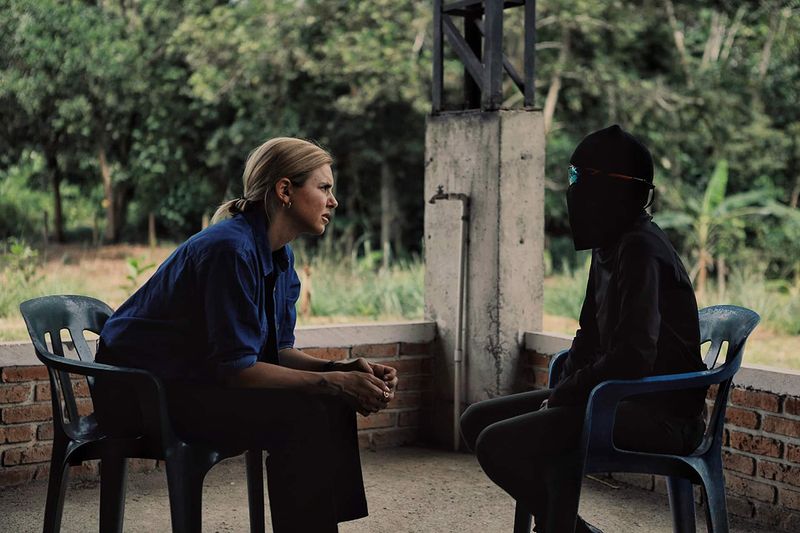
During the course of the show, you’ve obviously met some pretty dangerous people? Were there any times during the show you felt your life was in danger?
With every season of ‘Trafficked’, there’s always moments where it’s just super close calls. There was one in particular where we were filming ‘Cocaine Queens’, which is about women in the drug trafficking business. We spent months trying to get access to one of the leaders of a drug cartel in Colombia, her name is Sonia. And eventually, after many months, we are allowed into her compound. We get there and she’s surrounded by her bodyguards. We approach her and as soon as we started talking to her, there’s panic all around us. The bodyguards sort of grab her and take her to safety and tell us that we had to leave, that it wasn’t safe there anymore. And as we’re leaving the compound, we could hear the shots being fired behind us. So it was an incredibly close call.
At the time, I was mainly concerned not only for the safety of my team, but also for the safety of the people that just allowed us into their to their lives. But on the next day, we went back and continued our reporting.
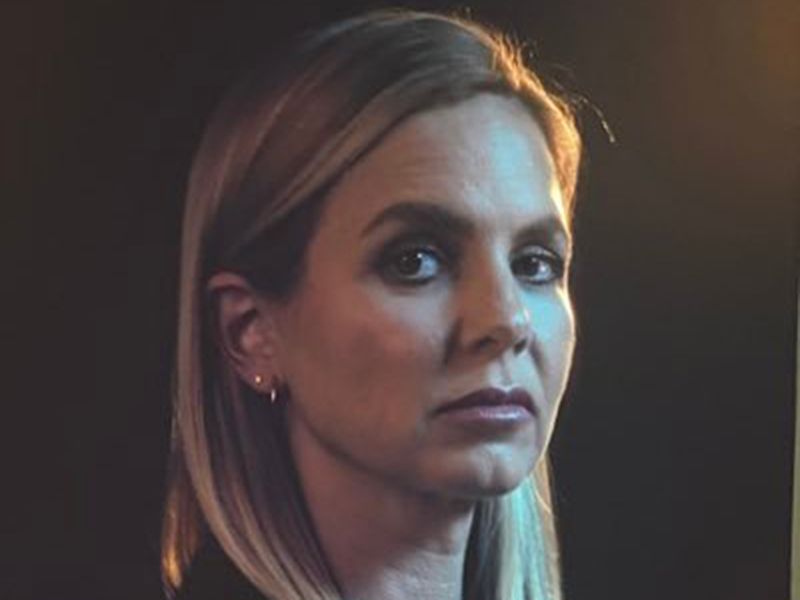
How do you maintain your composure when you’re faced with such difficult and tragic stories?
It’s not always easy, but I think I’m really sort of driven by an enormous curiosity. So for me, I’m always there because I want to learn about the why and how a person got to where they did. And I think judgement is always at the back. And empathy is always at the front. And that’s very much the tenet of the reporting that I do. So I’m constantly trying to place myself in people’s shoes and ask the question, ‘what if it was me? What if I was born in these conditions? Or what if I didn’t have the opportunities that I did?’ So I think that keeps me very grounded.
I do appreciate that you’ve empathised with people on the show. The average person might not see a trafficker or a scammer in a very positive light. What is the takeaway for audiences?
I say this often, but I think it couldn’t be truer, especially when it comes to ‘Trafficked’ and what I’ve learned by making this show is that no matter how far to the edges of our society you travel to meet these criminals... you can still find people that are redeemable and that are relatable, that you can still connect with people and hopefully that you will care about them about the worlds they operate in because only by caring are you actually able to make any difference in the world.
Don’t miss it!
‘Trafficked with Mariana van Zeller’ launches in the UAE on National Geographic at 11pm on February 18. New episodes release weekly.



